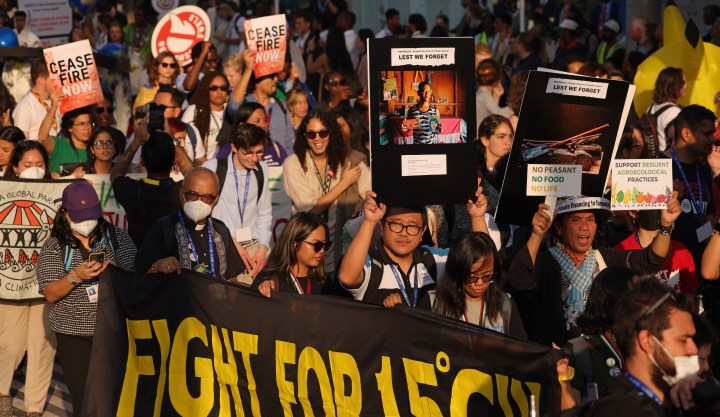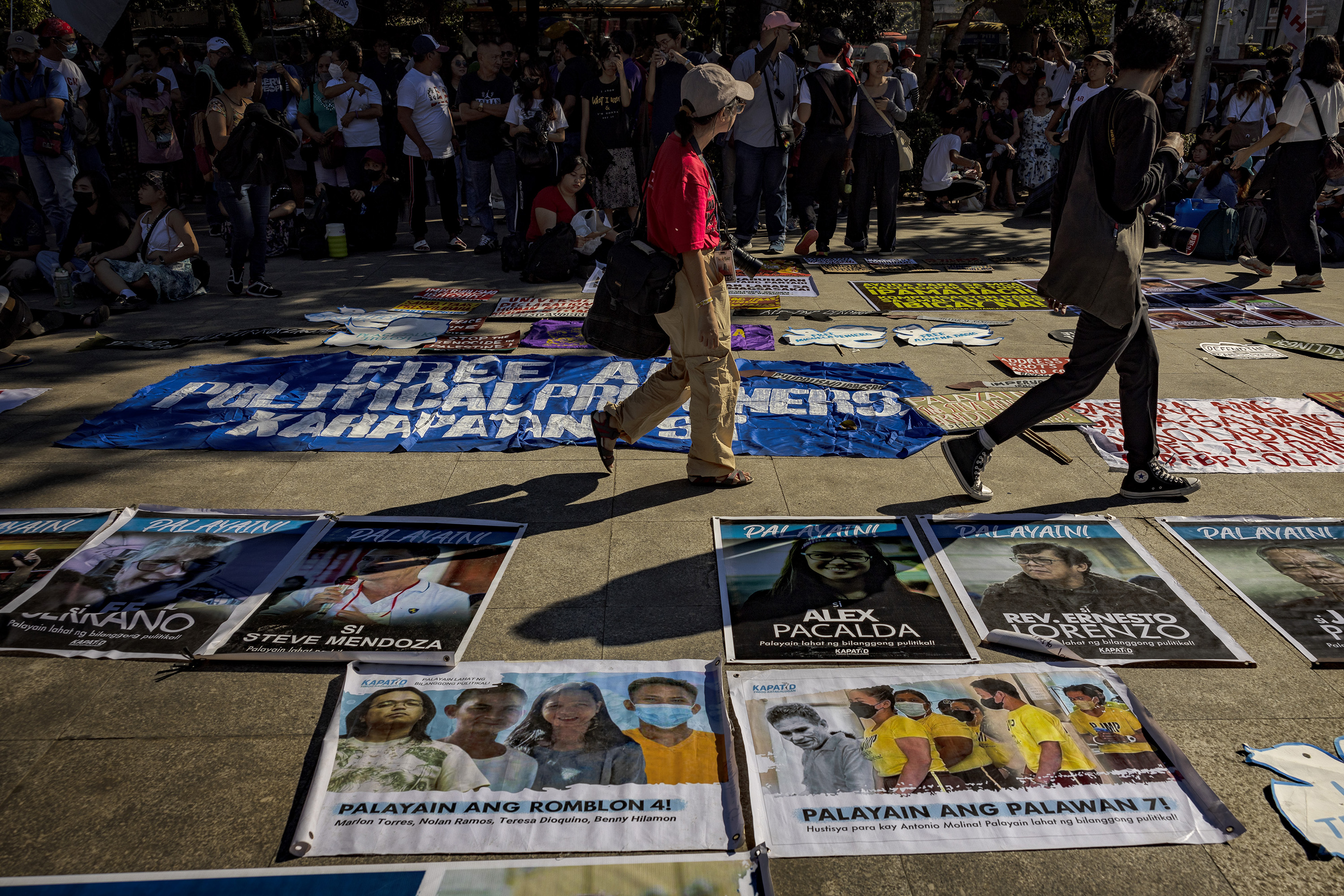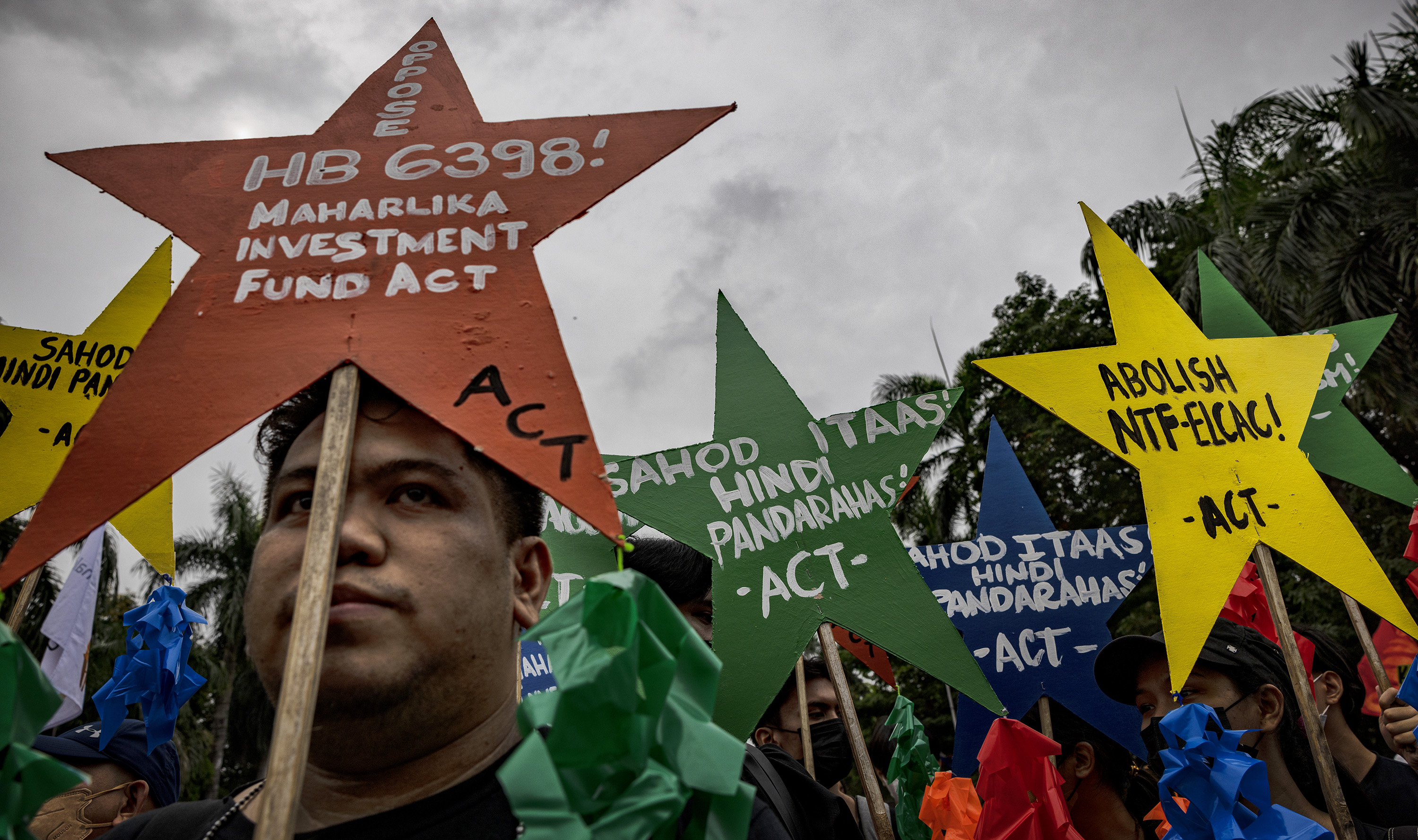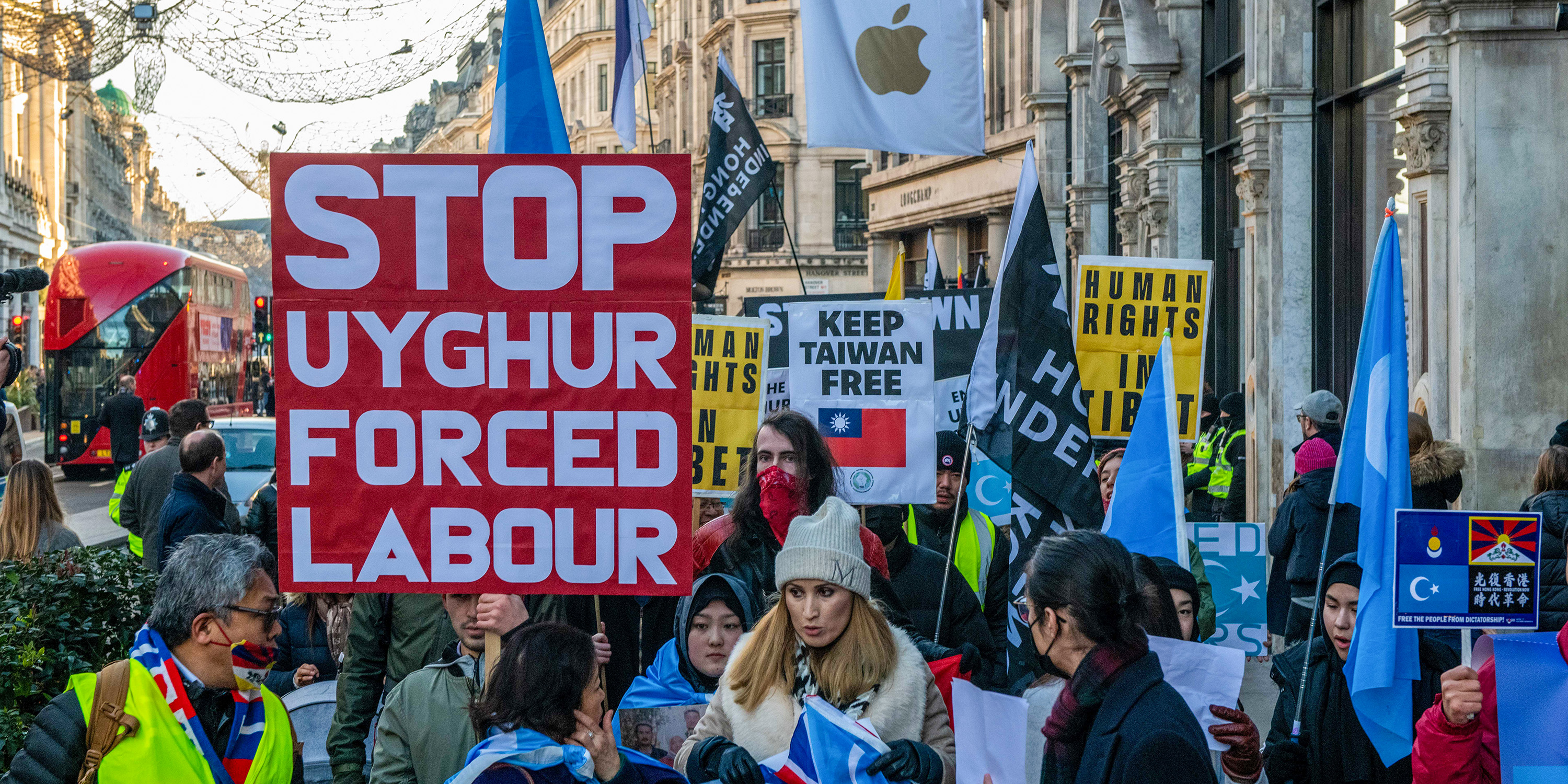REVITALISING DEMOCRACY OP-ED
The Universal Declaration of Human Rights: A template for our troubled times

Contemporary models of democracy cry out to be reimagined and revitalised to respond to contemporary challenges. In so doing, inspiration should be drawn from the universal, egalitarian, and holistic ethos of the Universal Declaration of Human Rights.
The Universal Declaration of Human Rights, which turned 75 on 10 December 2023, was a visionary instrument for several reasons. Widely regarded as laying the foundations of the contemporary international human rights system, one of its key features is its holistic and integrated conception of human rights. Thus, it integrates a comprehensive set of economic, social and cultural rights alongside, and on an equal basis with, many classic civil and political rights and freedoms.
For example, article 25 of the Universal Declaration enshrines the right to a standard of living adequate for health and wellbeing, including food, clothing, housing, medical care, social services and security when people’s livelihoods are threatened by circumstances beyond their people’s control.
The opening paragraph of the Preamble of the Universal Declaration proclaims that the recognition of “the inherent dignity and of the equal and inalienable rights of all members of the human family is the foundation of freedom, justice and peace in the world.”
Adopted in the aftermath of the devastation of two World Wars and the economic and social upheaval of the Great Depression, the influence of President Roosevelt’s 1941 “Four Freedoms Address” (freedom of speech; freedom of worship, freedom from want and freedom from fear) is evident in the Preamble of the UDHR.
In his subsequent State of the Union address in 1944, he proposed the adoption of an “Economic Bill of Rights”, observing, in gendered language of the time:
“We have come to the clear realisation of the fact that true individual freedom cannot exist without economic security and independence. Necessitous men are not free men. People who are hungry and out of a job are the stuff of which dictatorships are made.”

Activists walk past portraits of political prisoners as they take part in a protest near the presidential palace in Manila, Philippines on 10 December 2023 to mark the 75th anniversary of the Universal Declaration of Human Rights. (Photo: Ezra Acayan / Getty Images)
As a product of its time, the Universal Declaration did not include the right to a healthy environment. But it has been interpreted as a living instrument, inspiring, in the decades since its adoption, several previously unrecognised categories of rights-holders and also new human rights.
A highly significant development was the adoption in 2022 of a resolution by the UN General Assembly recognising the human right to a clean, healthy and sustainable environment.
A schism between rights
Unfortunately, when it came to translating the Universal Declaration’s integrated vision of human rights into legally binding international treaties a schism between civil and political rights, on the one hand, and economic, social and cultural rights, on the other, was created. Thus, after lengthy debates in the UN Human Rights Commission, the rights in the Universal Declaration were separated into two international human rights Covenants:
- The International Covenant on Civil and Political Rights (“ICCPR”) and
- The International Covenant on Economic, Social and Cultural Rights (“ICESCR”).
Both were adopted by the General Assembly in 1966 and entered into force in 1976. Both International Covenants have been widely ratified by States from all regions of the world.
However, the separation of human rights into two separate treaties (with some overlaps such as the rights to self-determination and to non-discrimination) had unfortunate practical consequences. I will highlight just two for present purposes.
State Parties’ compliance with their obligations under the ICCPR are supervised by an independent expert committee, the Human Rights Committee. In addition, from the time of its adoption in 1966, provision was made for an individual complaints procedure so that individuals under the jurisdiction of States that had accepted the relevant Optional Protocol could submit a case (“communication”) to the Human Rights Committee, alleging that their civil and political rights had been violated. This allowed for a reasoned view by an independent body on whether the State concerned had violated the individual’s right, and also the possibility of international remedies.
In contrast, no independent monitoring body was established under the ICESCR, and it was only in 1985 that the UN Economic, Social and Cultural Council adopted a resolution establishing an expert body to supervise State Parties obligations under the ICESCR – the Committee on Economic, Social and Cultural Rights. Moreover, the possibility for individuals and groups to complain to an expert body of violations of the economic, social and cultural rights in the ICESCR only became a reality in 2013 when an Optional Protocol to the ICESCR entered into force (five years after its adoption in 2008).
This international lag in mechanisms to protect economic, social and cultural rights is reflected in the fact that to date only 46 States have ratified this Optional Protocol (out of the 171 States that have ratified the parent Covenant, the ICESCR). In April this year, Germany became the latest country to become a State Party to the Optional Protocol to the ICESCR.
Inexplicably, South Africa with its integrated and holistic Bill of Rights reflecting the ethos of the Universal Declaration has yet to become a State Party to the Optional Protocol.
In comparison, there are 116 States Parties to the Optional Protocol to the ICPPR (out of the 173 States that have ratified the ICCPR). Consequently, there are still more opportunities for individuals and groups to seek international protection for violations of their civil and political rights than for economic, social and cultural rights.
The uneven path towards reintegration
However, this schism between the two categories of rights under international law is gradually being closed.
The international community under the auspices of the UN proclaimed in 1993 in the Vienna Declaration and Programme of Action adopted by the World Conference on Human Rights that:
“All human rights are universal, indivisible and interdependent and interrelated. The international community must treat human rights globally in a fair and equal manner, on the same footing, and with the same emphasis.”
The African Charter on Human and Peoples’ Rights adopted in 1981 reflects the spirit of the Universal Declaration and the international momentum towards an integrated approach to human rights norms. It thus integrates a full set of civil and political rights on an equal basis with economic, social and cultural rights. It also incorporates rights that speak to some major contemporary challenges of our times such as the right to development, the right to national and international peace and security, and environmental rights.

Filipino activists take part in a protest to mark International Human Rights Day on 10 December 2022 in Manila, Philippines. (Photo by Ezra Acayan / Getty Images)
While international and regional human rights law may be moving closer to recovering the holistic and integrated conception of human rights in the Universal Declaration of Human Rights, the same can unfortunately not be said of many national legal systems, particularly those steeped in a classic liberal tradition of constitutionalism. Frequently, economic, social and cultural rights are either completely excluded or corralled in a separate, “non-enforceable” part of the Constitution.
In this respect, the Global South has led the way with many new-generation Constitutions adopted in the past two decades incorporating economic, social and cultural rights. These include the 1991 Colombian Constitution, the 1996 South African Constitution and the 2010 Kenyan Constitution.
There have also been promising developments in many constitutional jurisdictions, such as India, to interpret civil and political rights such as the rights to life, the right to freedom and security of the person, and the right to equality expansively to incorporate economic, social and cultural rights.
South Africa’s Bill of Rights: Reflecting the Universal Declaration’s ethos
South Africa’s history is a stark illustration of how the political and economic exploitation of the black majority under colonialism and apartheid were mutually reinforcing. Our holistic Bill of Rights which integrates civil and political, economic, social, cultural, land and environmental rights is in many respects a response to this brutal history.
Read it here: Constitution of the Republic of South Africa, 1996 — Chapter 2: Bill of Rights
All the rights in the Bill of Rights are subject to judicial enforcement in terms of sections 38 and 172 of the Constitution.
Treating one set of rights as “different from” or “less important than” the other set inevitably diminishes and weakens the other set. Many traditional civil and political entitlements are essential to accessing and enjoying socioeconomic rights such as non-discrimination, freedom of expression, access to information and participation in decision-making processes at various levels.
Similarly, without the socioeconomic goods and services necessary for life, health and participation in society, many civil and political freedoms become merely formal entitlements. As Nelson Mandela famously observed in a speech in 1991 to the ANC’s conference, A Bill of Rights for a Democratic South Africa:
“A simple vote, without food, shelter and healthcare is to use first generation rights as a smokescreen to obscure the deep underlying forces which dehumanise people. It is to create an appearance of equality and justice, while by implication socioeconomic inequality is entrenched. We do not want freedom without bread, nor do we want bread without freedom. We must provide for all the fundamental rights and freedoms associated with a democratic society.”
These remarks capture what the Universal Declaration of Human Rights sought to convey through its integrative approach to human rights. It would thus be fitting tribute to the Universal Declaration of Human Rights as it turns 75 if the South African government initiated the process of becoming a State Party to the Optional Protocol of the ICESCR.
Drawing inspiration from the UDHR to reimage and revitalise democracy
The world’s major liberal democracies appear incapable of responding effectively and timeously to some of the major crises of our times – the triple planetary crisis of runaway climate change, pollution and biodiversity loss, the decline in living standards, and the stark economic inequalities within and between countries.

Protesters march on Regent Street towards the Chinese Embassy in London during a demonstration to mark human rights day on Saturday, 10 December 2022. (Photo: Chris J Ratcliffe / Bloomberg via Getty Images)
In several countries of the world, there is growing support for right-wing populist political parties. A recent study of 200 regional, national and European elections between 1980 and 2015 in eight countries found a strong association between economic austerity policies (which reduced spending on public services and goods) and support for extreme right-wing parties. According to the authors, economic austerity programmes have led to a significant increase in extreme parties’ vote share, lower voter turnout, and a rise in political fragmentation.
My hypothesis is that the lack of adequate accountability mechanisms (including, but not limited to, legal remedies) for implementing and safeguarding socioeconomic, cultural and environmental rights has made democracies more vulnerable to capture by populist elements.
Contemporary models of democracy cry out to be reimagined and revitalised to respond to contemporary challenges. In so doing, inspiration should be drawn from the universal, egalitarian, and holistic ethos of the Universal Declaration of Human Rights. The task of re-evaluating how contemporary democracies can better protect and nurture all dimensions of human wellbeing in harmony with nature and all living beings is an urgent one. This is the challenge that confronts us if we wish to preserve the magnificent achievement and legacies of the Universal Declaration of Human Rights for present and future generations. DM
Prof Sandra Liebenberg is Distinguished Professor and HF Oppenheimer Chair in Human Rights Law at the University of Stellenbosch Law Faculty. She is a former member and Vice-Chair of the UN Committee on Economic, Social and Cultural Rights. This article does not purport to represent the views of Stellenbosch University or its management.


















Comments - Please login in order to comment.